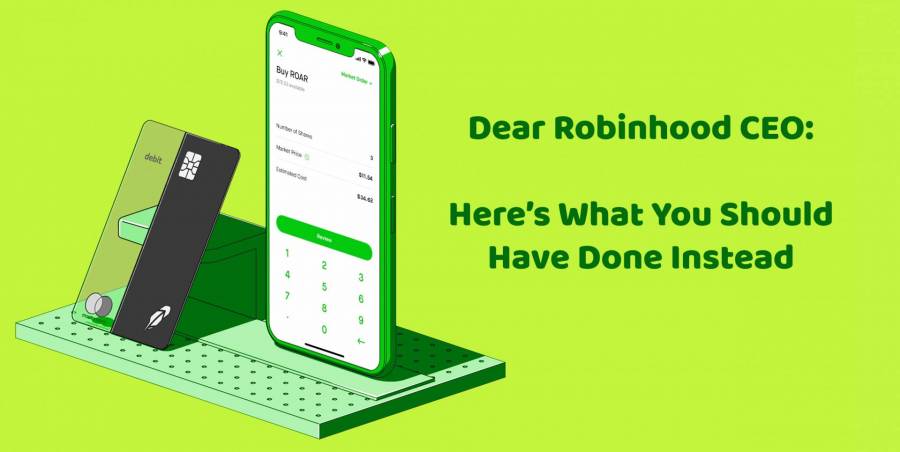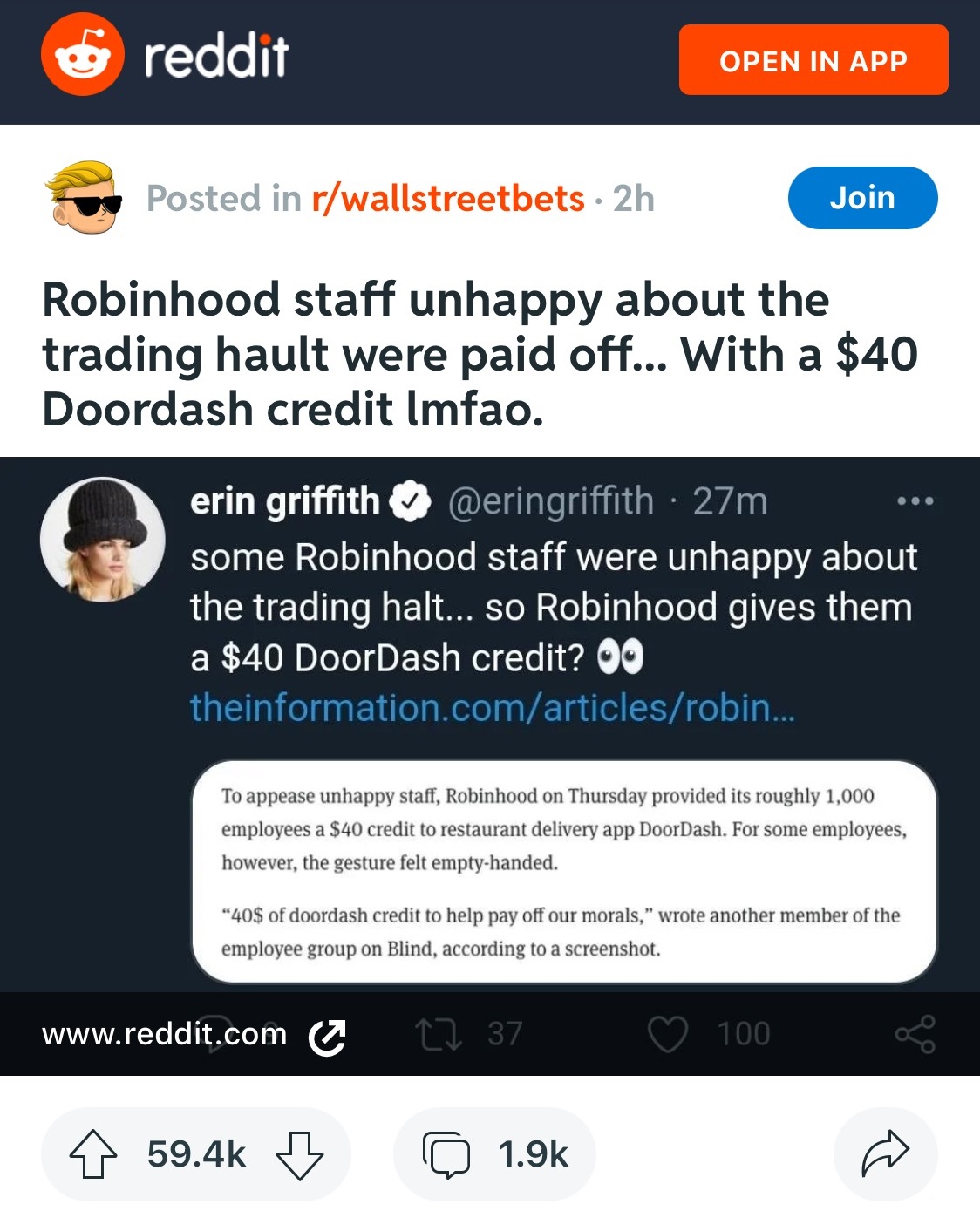It takes years to build a reputation and only moments to destroy it. Amidst an unprecedented (ugh – not that word again!) trading surge, the Robinhood CEO had an impossible tension to navigate. How to address big-picture business concerns, while appeasing the interests of investors and company employees.
I’m sorry to say that employees got picked last.
Robinhood CEO experiences employee backlash.
Employees Feeling Disenfranchised
According to its website, Robinhood’s mission is “democratize finance for all.” But the decision was made this past week to restrict transactions on highly volatile stocks (do I even need to tell you which?). And team members were left wondering if they had been lied to.
“In the knowledge economy, employees espouse the brand values as much as their title or their paycheck,” says leadership expert, Robert Glazer, of Acceleration Partners. “One wrong move is often met with grace. But wrong moves compounded with poor communication can cause a revolt and an employee backlash”
Robinhood apologized to its one thousand employees by issuing a $40 DoorDash credit. This gesture occurred after the company secured an additional billion dollars to cover margins. A necessary operational response? Absolutely. But not the message they were looking to send internally.
“The recipients were patronized,” says John Ruhlin, author of GIFT∙OLOGY, a playbook for B2B gifting. “Everyone on the planet is watching your every move. And the best you can come up with is a $40 gift card? This adds insult to injury.”
Foundations of Employee Gifting
In Robinhood’s defense, most business leaders are horrific gift-givers. One recent study documents how givers and recipients place different value judgments on the same gift. The disconnect can be so massive that, according to another study, the wrong gift does more to hurt than help.
Ruhlin says he’s seen it happen. “Loyalty is fickle because feelings are fickle. We have clients that come to us and say: ‘we tried gifting, we messed it up, can you salvage this?’ Fortunately the answer is almost always yes.”
So what should Robinhood’s CEO have done? And how can you successfully execute strategic gifting in your organization? The following tips will help.
Choose your words carefully
The most important part of an apology is to mean it. Jonathan Bernstein, founder of Bernstein Crisis Management and author of ‘10 Steps of Crisis Communication,’ suggests leading with empathy. “Your messaging must make it clear you have compassion – stakeholders must understand your message the way it was meant to be understood.” In other words: you must genuinely care.
Proper wordsmithing is crucial even when you’re not apologizing. Would you rather eat something 95% lean or 5% fat? If your goal is sincerity, avoid clichés and corporate platitudes.
Good leaders communicate from the heart. Not through the lens of legal permissibility or marketing spin.
Get them what they want
While this might be blasphemous to some, these five studies make a convincing argument to involve the recipient in gift selection. Monika Kochhar is the co-founder of SmartGift, a platform that enables business leaders to connect with others in a virtual world.
“Modern day technology allows us to re-imagine the traditional gifting experience. Instead of saying, ‘here – I got this for you,’ we can now say ‘I got this for you – which color, what size, and where do you want it shipped?’” SmartGift uses artificial intelligence to help match recipients with the right item at a pre-determined price point.
No more ‘one size fits all.’ Something Robinhood employees (and critics) might have appreciated.
Spend the right amount
So how much should Robinhood have spent on their gift? Both Ruhlin and Kochhar cited similar numbers from their client experiences. “Our biggest successes are practical luxuries, in the $100-$300 range. It’s high enough to afford quality, but not so low to appear stingy.”
Kochhar suggests not obsessing over price-tags. “Employee gifting is an investment. Leaders don’t audit the salaried costs of two hour Zoom calls. Yet we’re going to pinch nickels with appreciation? Double standards do not serve us.”
It’s not about you.
The fastest way to devalue a gift and turn it into an advertisement is by putting your company’s name on it (this StoryBrand podcast explains it nicely). Over the years, I have received a thrift store’s worth of logo-covered tote bags, clothing, and water bottles. All have been donated, trashed, or relegated to the garage.
Robinhood might not have done this explicitly. But the immediacy of their gesture suggests more of a reactionary appeasement than genuine remorse. You wouldn’t give your spouse a gift with your name on it. Don’t do it for your employees or clients. And never make your gifts about the optics.
The right perspective. Always.
Leaders like Gary Vaynerchuk encourage leaders to play the long game – both with gifting and decision-making. While I am empathetic to the chaos surrounding Robinhood’s CEO this past week, this saga feels less like a passing tabloid headline and more like THE BIG SHORT. Or at least an extended 30-for-30 episode.
Unlike certain investment strategies, there’s no benefit to volatile reputations. In today’s media-crazed environment, brands explode (or implode) when the CEO makes the right moves. Our opportunity as leaders is to build reputations out of stone, not plastic. When we execute strategic gifting the right way, we create an environment of stability and confidence. And a brand to match.



















